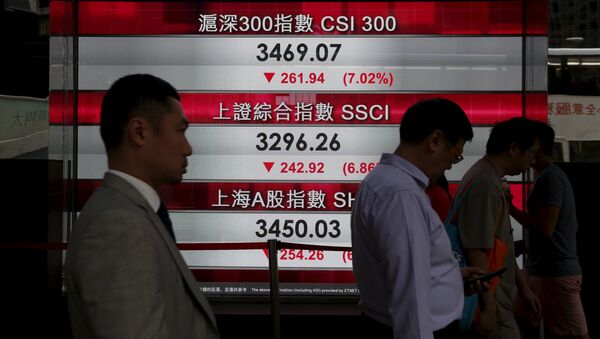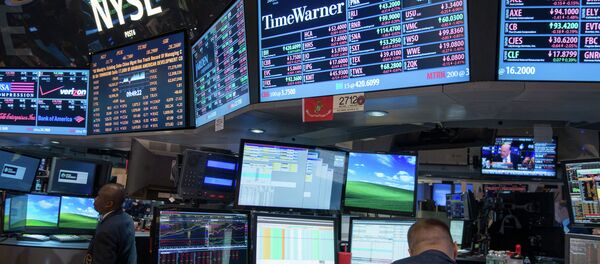China halted trading at its Shanghai and Shenzhen stock markets after shares listed on the Shanghai exchange plummeted nearly 7 percent on Monday.
The decline also led European markets to decline over two percent. The collapse could be linked a rise in oil prices that has resulted from a diplomatic confrontation between Iran and Saudi Arabia. China is highly dependent on imported oil.
China initially halted trading for 15 minutes, as part of a new "circuit breaker" system, which debuted on Monday, and shut down the market permanently after the pause failed to stop the trading collapse.
"The mechanism is merely a tool and it won't help the market find its true value. With or without the system, the market will continue to drop further if selling pressures piles up," Shen Zhengyang, an analyst at Northeast Securities, told AFP.
The collapse could have little impact on China's economy, in which officials do not consider economic statistics such as gross domestic product and company valuations to be linked to economic growth.
Large-scale speculation on Chinese markets was blamed for the August 2015 stock market collapse, in which shares fell by nearly a third over the course of a month.
Brent crude oil rose by over two dollars since tensions began between Saudi Arabia and Iran, although they have receded since then.


